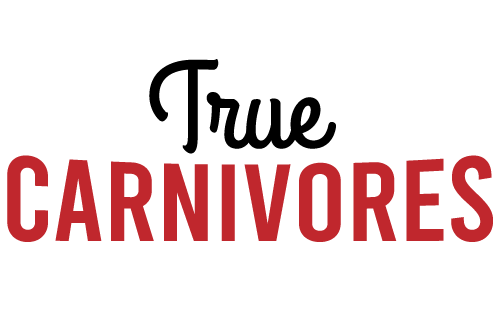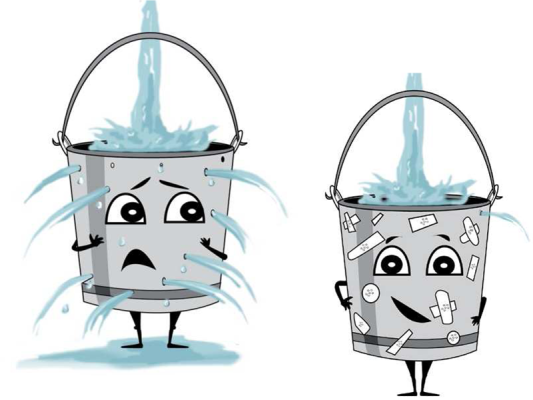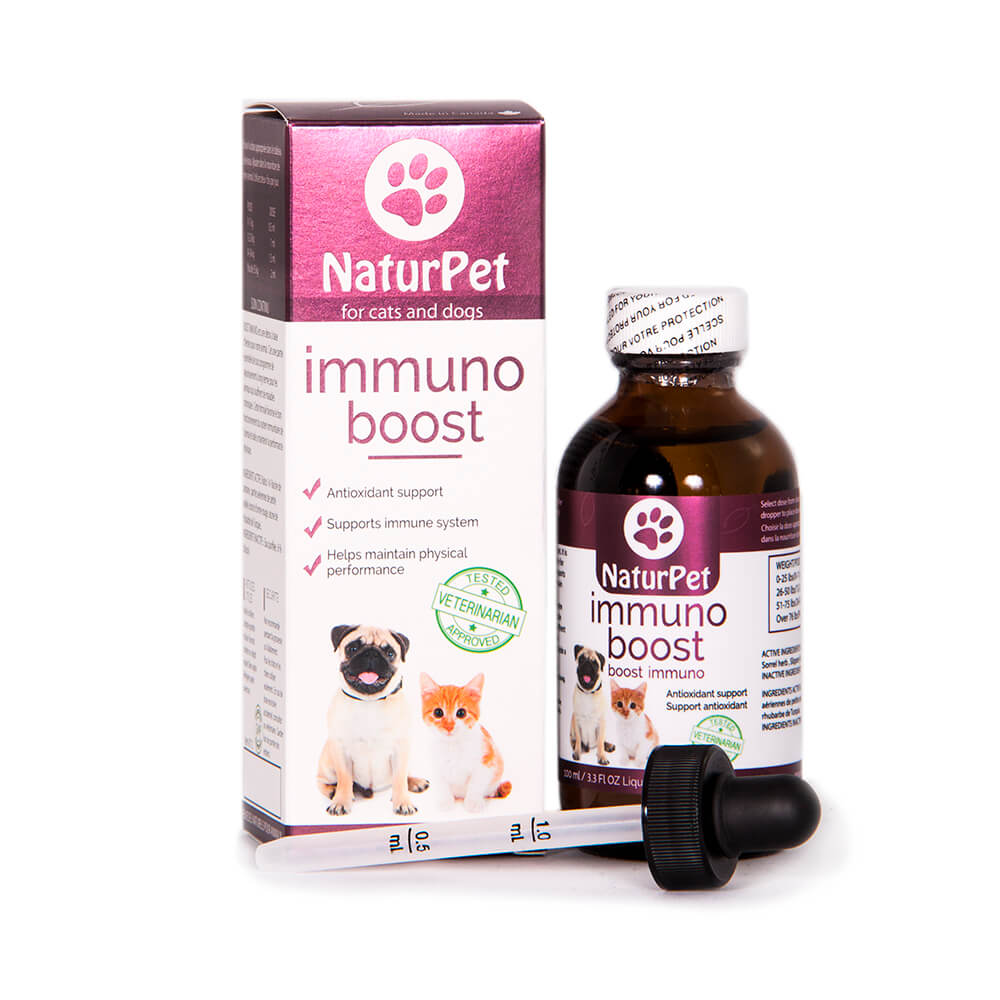What is leaky gut syndrome?
“Leaky Gut”, or Dysbiosis, is caused by a bacterial imbalance that leads to inflammation of the intestinal mucosa. The mucosa is a thin layer of cells which line the inside of the intestines. It acts as a barrier to toxins and parasites, as well as a gateway to allow nutrients into the body. When the lining of the intestines is inflamed, the mucosa becomes compromised and allows undigested food particles and other toxins to enter the bloodstream. You can think of the intestine walls as cheesecloth. When it is healthy, the holes are close together and only allow through the smallest particles which are safe for the body. When it is inflamed, these holes become damaged and stretch apart, allowing through larger particles which are harmful to the body.
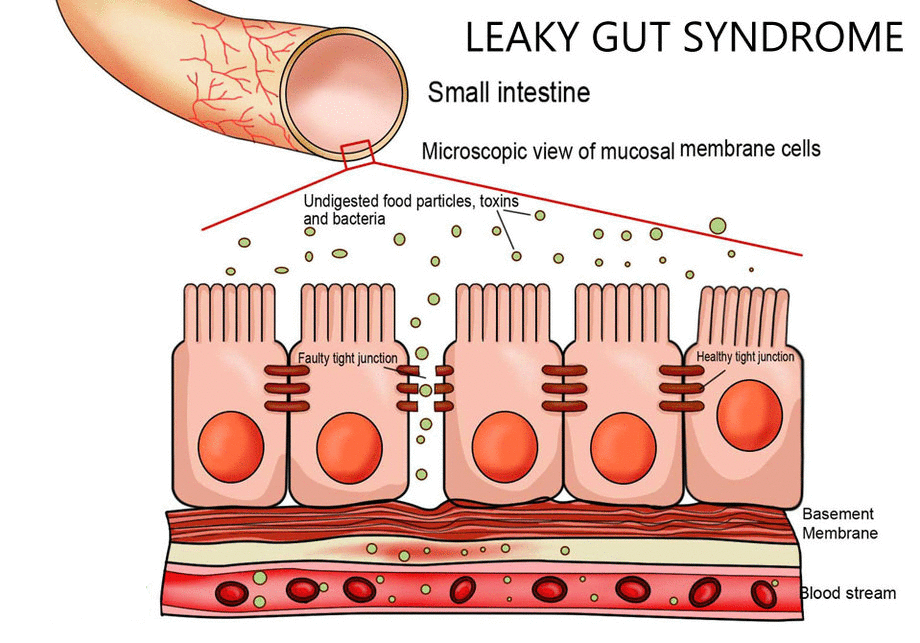
What causes leaky gut?
In today’s dogs and cats, the most common cause of leaky gut is an overuse of antibiotics. This, coupled with vaccines which can further suppress the immune system, the use of corticosteroids or NSAIDs (non-steroidal anti-inflammatory drugs), highly processed diets, and stress can contribute to the development of the leaky gut.
What are the symptoms of a leaky gut?
So what exactly does leaky gut in your pet look like? Typical symptoms include gas, bloating, diarrhea, or multiple/unresolvable allergic reactions. As the gut makes up more than 70% of your pet’s immune system, leaky gut can also worsen or cause other conditions in the body. These may include:
- allergies
- autoimmune diseases
- weight fluctuations
- liver, gallbladder and pancreatic disorders
- bladder inflammation
- joint pain
- bad breath
- certain types of cancer.
How does leaky gut happen?
To better understand how Leaky Gut occurs and how it affects your pet’s overall health, let’s take a closer look at how your pet’s digestive system works once the food has left the stomach:
When food enters the small intestine, the pancreas releases digestive enzymes, and the gallbladder releases bile to further break down and digest food. This chemical digestion process continues in the small intestine, where bacteria will further break down the food into useable particles.

Once the food is adequately broken down, the membranes of the intestinal mucosa absorb the smaller, simple nutrients. The remaining food is either further digested and absorbed or moves into the large intestine where it is passed as feces.
For this complex process to work efficiently, the environment of the digestive tract must be healthy and well-functioning. In cases of Leaky Gut, where gut bacteria become imbalanced, the process of digestion is altered. The intestinal mucosa becomes inflamed and begins to leak larger, undigested food particles into the bloodstream. This sets off a string of events in the body, causing the liver to work overtime to screen out these particles. If the liver cannot keep up to this load, pathogens or “foreign invaders” will begin to accumulate in the body. The immune system is then triggered to fight these “invaders”, producing antibodies against these substances.
This is what sets the stage for the occurrence of one or more of the symptoms described above. Often times, dogs with multiple allergies or unresolvable allergies are suffering from Leaky Gut, as the body begins to recognize food as its enemy since nutrients are not being adequately digested before entering their bloodstream.
How can you heal your pet's leaky gut?
A healing program can be customized for each animal based on their conditions and symptoms, and any underlying allergies or sensitivities. We offer a 5-step regimen that covers all the bases, but you can build your own to suit your pet’s needs. Supplements which have been found to be useful include:
- probiotics and digestive enzymes to restore healthy guttural flora (the good bacteria)
- natural anti-inflammatories to soothe the gut
- herbal supplements to boost the immune system, support the digestive organs, and add mucilage which coats the intestines and helps repair the damaged mucosa
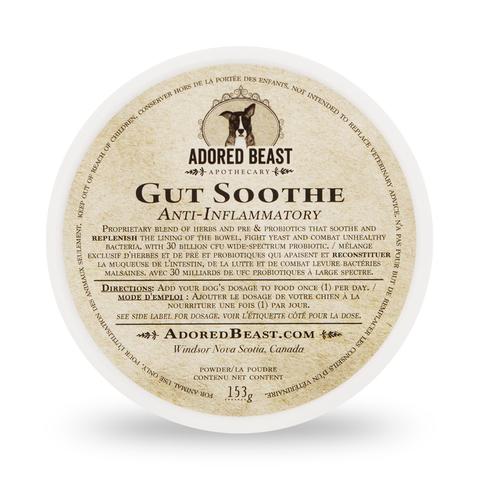
In general, removing highly processed, high-stress foods from your pet’s diet in favor of species-appropriate, low-stress foods, plus appropriate supplements to address inflammation and other digestive symptoms will get your pet on the road to recovery and help maintain a healthy digestive system.
